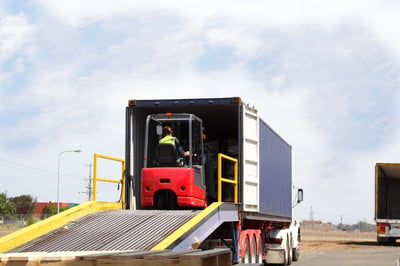Ever heard the dreaded question, “Where’s my shipment?” This is a query you just don’t want to hear from a client. Unfortunately, owing to a litany of supply chain disruptions, it’s become a common source of friction in recent years. Late shipments have strained customer satisfaction scores (CSAT) across all industries, and as the old chestnut goes, trust is hard to win and easy to lose. If you’re dealing with a supply chain crisis of confidence among your customers, read on. We’ll show you how to identify, resolve and communicate about a late shipment before it ticks your customer off.
Mind you, not that long ago, it was just good corporate PR to keep a company’s logistics invisible to the outside world. Who cares about how a product reached its destination, so long as it got there? Logistics happened behind a lush velvet curtain of veiled professionalism. Then the world changed. From the Covid-19 pandemic to the Great Resignation, to the stress on our trucking industry and looming rail strikes — the global supply chain has endured a battering that doesn’t look set to disappear any time soon.
Honesty: It’s not just for boy scouts
Beleaguered companies pressured by seemingly endless supply chain disruptions have become more candid when something goes wrong. Senior executives who might once have confined their public statements to blue sky thought leadership are now talking about the daily challenges of supply and distribution. That secretive corporate etiquette of sweeping logistics SNAFUs under the carpet has steadily given way to “controlling the narrative” with clear and proactive messaging. Why this change? Sure, it’s harder to get products from A to B, but why has that changed how companies communicate?
Our take? It comes back to customer satisfaction. While global supply chain volatility has made freight less reliable, consumer expectations haven’t shifted all that much. Human nature is a fixed constant, and when something affects our interests, we’re not usually that good at being philosophical about it.
Down to brass tacks, customers see a late delivery as a reflection on you. They don’t care about the carriers you use, the trucking and rail industries you rely on, or the world at large. Unavoidable late deliveries will cost you just as much business as avoidable ones. How much? Nearly a third of consumers will consider choosing a new supplier after just one late delivery, Supply Chain Quarterly reports.
How IL2000 can help you deliver the right message
 You’ll recall that we started this blog with that question all client servicing reps hate to hear: “Where’s my shipment?” How do you get on top of that question? Or, put another way, what’s the ideal message to deliver before you hear it? Knowing a shipment will be late and giving your customer advance warning is a great start, but just saying, “sorry, your shipment’s gonna be late” won’t cut it.
You’ll recall that we started this blog with that question all client servicing reps hate to hear: “Where’s my shipment?” How do you get on top of that question? Or, put another way, what’s the ideal message to deliver before you hear it? Knowing a shipment will be late and giving your customer advance warning is a great start, but just saying, “sorry, your shipment’s gonna be late” won’t cut it.
Exactitude of messaging is key here. The reassurance your message delivers hinges on specifics. You need to be able to proactively tell your customer when the delivery will arrive, why the delivery delay happened, and how you’ll fix it moving forward. Heck, if you can tell them the delivery truck will be bright yellow and driven by a guy named Larry, all the better. Details matter.
When their delivery will arrive
Xanthic-hued delivery vehicles aside, Time is the critical piece of information your client needs. Whatever the reasons for the shipment delay, your customer is unlikely to care until you can give them a revised delivery date. It’s the first thing they need to hear.

Confidence gets you only so far. Sooner or later you’ll need cold hard facts. IL2000’s shipment tracking equips you with that vital information. Let’s say a truck breaks down and your shipment gets stranded at a warehouse somewhere. Our transportation management system’s advanced tracking capability will instantly notify you about it. You’ll be armed with an updated delivery date before your customer has an inkling the delivery was delayed.
Exact ETA’s are a great start, but we’d be remiss not to mention that IL2000’s 24/7 rapid response capability means you may be able to sidestep the tricky conversation altogether. When a delivery is down for the count your IL2000 logistics manager will be actively working on it in under 15 minutes. There may not even be a delay.
Why the delay happened
Let’s assume your customer has a new time firmly set. You’re now in a good position to pivot the conversation to why the delay happened. When a shipment delay happens, an IL2000 logistics expert will investigate the delay and keep you in the loop with a detailed report. You gain the hard data you need to convey a clear and reassuring message to your customer.
Learning and continuous improvement are part of this picture also. Once we know why the delay occurred, we can do something about it. IL2000’s dedicated supply chain troubleshooting team will work with you to improve profits and productivity through constant supply chain refinement. And if a problem originates with one of your carriers we’ll vigorously represent your interests to negotiate a solution.
How you’ll work to fix it

Even if you can’t promise zero further delays (seriously, in today’s supply chain climate, never promise that!), you can at least assure the customer you’re committed to narrowing the odds in their favor.
Nothing broadcasts your commitment to delivery reliability more clearly than solid data and a detailed plan for that next shipment. IL2000’s detailed exception reporting on problem shipments gives you the ammunition you need to deliver that message convincingly.
Continuous supply chain efficiency gains show your client you mean business. But what if those late deliveries aren’t the exception but the rule? IL2000 can conduct a supply chain center of gravity analysis to identify your optimal distribution center locations. Optimized distribution can dramatically improve delivery reliability and CSAT with more geographically remote customers.
Boost your CSAT with a trusted logistics partner

Everyone has heard the cliche that the customer is always right. It may not be fair that an unavoidable late shipment reflects on you, but that doesn’t change the fact that an unsatisfactory customer service experience is bad for business. The opposite is also true. It takes just one good conversation to protect your CSAT score and successfully maintain customer loyalty and retention. IL2000 equips you to have that conversation, with accurate data on when a delayed shipment will arrive, what happened, and how you’ll minimize the chance of it happening again. Don’t wait for the dreaded question.
Don’t wait for the dreaded question. Embody excellence and get ahead of the narrative with IL2000.
Talk to us today for a no-obligation consultation.

